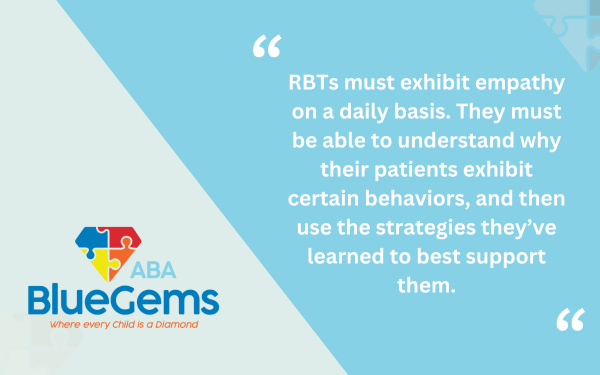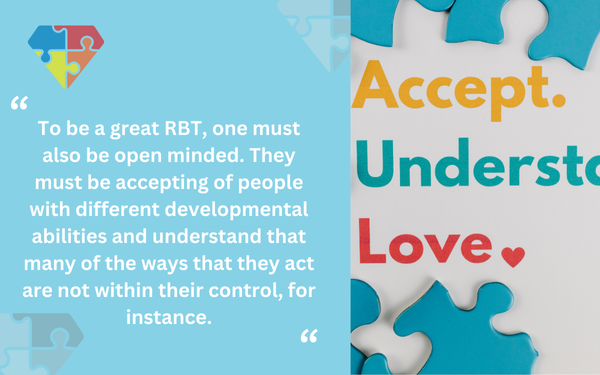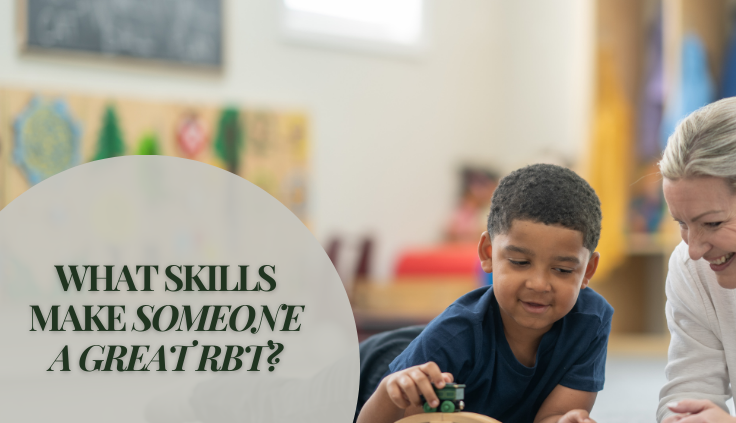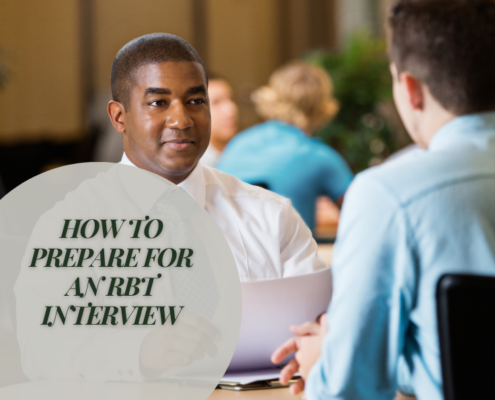What Skills Make Someone a Great RBT?
A Registered Behavior Technician (RBT) plays an integral role in supporting children with autism spectrum disorder (ASD) and other developmental disorders. They work every day in fields such as applied behavior analysis (ABA therapy) to help children gain communication and social interaction skills while also modifying certain behaviors.
A career as an RBT can be very rewarding, as they make a significant difference in the life of their patients as well as the patients’ families. While it can be a challenging job, it’s one that also provides many benefits.
To become an RBT, there are clear guidelines that you must follow, including passing prerequisites for age and education level, as well as completing required coursework and passing formal examinations.
But, what skills make someone a great RBT? We’ll discuss just some of those skills below.
Table Of Contents
Empathy
A critical skill that RBTs must have is empathy, which is essentially the ability to not only recognize and understand another person’s feelings and thoughts, but the ability to share in that experience.
To be empathetic to someone else, you must be able to understand their point of view, what they’re going through and experiencing, and how that affects how they act.
RBTs must exhibit empathy on a daily basis. They must be able to understand why their patients exhibit certain behaviors, and then use the strategies they’ve learned to best support them.

Empathy plays a crucial role in not only supporting patients but also their family members, who may not understand what their child is going through or may not be as accepting.
Patience
At the same time, great RBTs must be very patient. It’s important to realize that treatments such as ABA therapy take time to work, and that there will be stumbling blocks along the way.
In many ways, patience and empathy are tied together for RBTs. They have to be empathetic enough to understand where their patients are coming from, and then display patience as a result as they seek to provide the best support possible.
RBTs will often have their patience tested by the children they serve, as well as the parents, guardians, caretakers, family members and other professionals they must interact with on a consistent basis.
Critical Thinking
ABA therapy is based on a core set of principles about how children with autism and other developmental disabilities are “wired” and how they need to be best supported. There are many great tools and strategies that RBTs and other professionals in the field are equipped with to provide the best possible care.
One of the great things about ABA therapy is that it’s so customizable, flexible and adaptable. This is an important aspect of the treatment, as it seeks to meet every individual child exactly where they are.
From the RBT’s standpoint, this means they must be able to think critically on the fly so they can choose the right strategies and tools to target the unique strengths and challenges of every one of their patients.
They’ll use critical thinking skills to consistently identify how their patients respond to certain strategies and tools, and then continuously modify their approach based on that response.
Open Minded
To be a great RBT, one must also be open minded. They must be accepting of people with different developmental abilities and understand that many of the ways that they act are not within their control, for instance.

In addition, RBTs have to be open minded enough to accept ongoing feedback from their supervisors, and accept constructive criticism as a way to help them grow.
ABA therapy teams are all committed to one thing — supporting each individual patient in the best way that they need. While RBTs may be handling a good portion of the hands-on treatment with patients, it really does take a full team effort to successfully administer the therapy.
To that end, great RBTs have to recognize that they are but one spoke on the wheel and that there are higher-ups with more experience than them who can share wisdom and knowledge they’ve gained with years in the field.
Not only do RBTs have to be open to receive feedback, they have to express their thoughts and feelings, and ask any questions they have, on an ongoing basis if they want to improve.
Work with Blue Gems ABA’s Experienced Professionals
A career as an RBA can be extremely rewarding, as they play a central role in helping to support children on the autism spectrum. If you’re interested in pursuing a career as an RBT, know that some of the skills above are ones that are essential if you want to thrive in your field.
At Blue Gems ABA, we have a large team of experienced professionals who support children with ASD every day. From RBTs to BCBAs and more, we administer ABA therapy, helping children build the social, communication and daily life skills with which they typically struggle.
To learn more, please contact us today.










